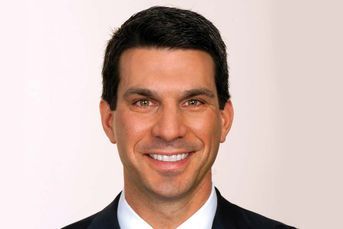AIMR seeks tighter rules for figuring returns
Institutional money managers may soon have higher hurdles to clear before they can boast of hot sector returns.
Institutional money managers may soon have higher hurdles to clear before they can boast of hot sector returns.
The group that sets the standards for calculating investment returns and marketing the results has proposed several changes that would reflect new global standards.
The most contentious provision will guide the way money managers can treat cash when reporting returns on their sector-oriented stocks or bonds, also known as “carve-outs.”
Cash allocations can strengthen or weaken the performance of composites, which are aggregates of holdings that companies put together to show how well they manage money in a sector.
The proposed standard would give money managers less discretion in allocating cash.
“It’s a higher standard, but as far as I’m concerned, it leads to a better result for clients and consultants,” says Derek Sasveld, a strategy analyst at Brinson Partners in Chicago, a division of UBS Asset Management that has $189 billion under management for mostly institutional clients.
Some 75% of U.S. and 65% of Canadian institutional money managers use the complex and stringent standards developed by the Association for Investment Management and Research in Charlottesville, Va., which is offering the new standards.
Consultants for pension funds and other institutions tend to seek out money managers that adhere to those standards, known in the industry as AIMR-PPS.
Last year, AIMR adopted global investment performance standards (Gips) and now wants to bring the AIMR-PPS in line with them.
“Global firms in particular should have a real interest in these changes,” says Jessica Mann, vice president of standard setting for AIMR.
Inside the United States, requests for proposals from consultants “are asking for AIMR-PPS compliance, but outside the U.S., the question is whether they are Gips compliant,” she says.
The global standards for the institutional market came about because of the globalization of the investment industry.
The standards are intended to help institutional consultants and clients evaluate money managers in different countries based on one set of rules.
Retail mutual funds, where a large amount of money is pooled in a variety of investments, already must adhere to Securities and Exchange Commission guidelines when it comes to advertising and marketing historical performances.
carving assets
But on the institutional side, where sometimes hundreds of separate accounts are managed on a similar basis, being able to show strength in certain sectors – whether bonds, technology or real estate stocks – means aggregating the accounts and coming up with sector composites.
Under current standards, companies can carve out asset segments – say, technology stocks – from multiple portfolios and combine them as long as cash is allocated to that segment.
Money managers currently can adhere to the standards by allocating cash to their liking, which can bolster a composite’s return without truly reflecting the manager’s performance in that particular sector.
But AIMR is proposing that such carve-outs be used only if they are truly managed separately, with their own cash allocations.
“It’s hard to say it’s been a big problem, but we’re trying to solve what we see as how arbitrarily the [current] solution is applied,” Ms. Mann says.
But without the change, AIMR’s comment paper argues, the current rule “can lead to arbitrariness, the potential for abuse and the distortion of a firm’s true performance history.”
“It makes a great deal of sense to make that type of change to give the investor the ability to more accurately assess the money manager’s ability to pick stocks,” says Jim Ackor, an analyst based in Portland, Me., with Tucker Anthony Sutro Inc. of Boston.
AIMR also wants to change the standards applying to the types of significant events that are reported to potential clients.
Currently, AIMR-PPS requires only that companies report personnel changes. The group wants to adhere to the global standards, which recommend that any material events – such as new ownership – that could affect the firm’s performance record are reported.
The AIMR is seeking comment until Dec. 31 on the changes. The earliest the changes would be approved by the AIMR board is next May.
Learn more about reprints and licensing for this article.





